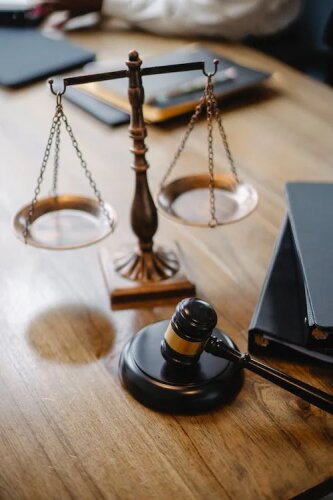Best Antitrust Lawyers in Kaunas
Share your needs with us, get contacted by law firms.
Free. Takes 2 min.
List of the best lawyers in Kaunas, Republic of Lithuania
About Antitrust Law in Kaunas, Republic of Lithuania
Antitrust law, also known as competition law, is designed to maintain fair competition, prevent monopolies, and protect consumers and businesses from unfair business practices. In Kaunas, Republic of Lithuania, antitrust is governed by both Lithuanian national legislation and European Union regulations. Competition law in Kaunas is particularly essential due to the city’s dynamic business environment, which includes various commercial enterprises, startups, and well-established companies. The primary aim of antitrust law here is to create a level playing field in the marketplace, encouraging innovation and protecting customer interests by targeting anti-competitive agreements, abuse of dominance, and mergers that might hinder competition.
Why You May Need a Lawyer
Seeking legal help in antitrust matters is crucial in several situations. If you are a business owner in Kaunas facing an investigation by the Competition Council of the Republic of Lithuania, responding efficiently and correctly is essential. You may also need a lawyer if you suspect a competitor is engaging in anti-competitive practices such as price fixing, predatory pricing, bid rigging, or market sharing. Additionally, companies that are planning mergers, acquisitions, or collaborations need expert legal guidance to ensure compliance with regulations. Individuals or businesses who have suffered financial loss due to unlawful competitive behaviors may also seek compensation through legal channels, where professional assistance is invaluable.
Local Laws Overview
Antitrust regulation in Kaunas operates within the framework of both Lithuanian and European Union laws. The key national legislation is the Law on Competition of the Republic of Lithuania, which covers prohibited agreements, abuse of dominant position, and concentration control. The Competition Council is the authority responsible for enforcing these laws locally and nationwide. Agreements or practices that restrict competition, such as cartels and price-fixing arrangements, are strictly prohibited. Abuse of dominant position, like imposing unfair prices or limiting production, is also regulated. Mergers and acquisitions that exceed certain thresholds must be notified to the Competition Council, which evaluates if such concentrations would limit competition in relevant markets. Lithuania follows the competition rules of the European Union, particularly Articles 101 and 102 of the Treaty on the Functioning of the European Union, which apply to activities affecting trade between member states and ensure harmonized competition policies across the EU.
Frequently Asked Questions
What is considered anti-competitive behavior in Kaunas?
Anti-competitive behavior includes practices such as price fixing, market division, bid rigging, abusing a dominant market position, or agreeing with competitors to restrict competition. These actions are unlawful under both Lithuanian and EU competition laws.
Who enforces antitrust laws in Kaunas?
The Competition Council of the Republic of Lithuania is the main enforcement body for antitrust laws. It investigates suspected violations and has the authority to impose penalties or require changes to business practices.
How do I know if my business is being investigated for antitrust violations?
Businesses under investigation typically receive official notifications from the Competition Council. Investigations may begin based on complaints, reports, or the Council's own monitoring. If you receive such a notice, seek legal advice immediately.
Are all agreements between competitors illegal?
Not all agreements are illegal. However, agreements that have the object or effect of restricting competition, such as fixing prices or sharing markets, are prohibited. Some cooperation may be allowed if it promotes innovation and consumer benefits without harming competition.
What are the penalties for breaching antitrust laws?
Penalties can include significant fines, orders to cease illegal activities, and, in some cases, personal liability for company executives. Fines can reach up to ten percent of annual global turnover for serious violations.
Do I need to obtain approval before merging with another business?
If the merger or acquisition meets certain financial thresholds, you must notify the Competition Council before proceeding. The Council will review the transaction to ensure it does not substantially lessen competition.
Can individuals or businesses seek damages for antitrust violations?
Yes, if your company or you as an individual have suffered losses due to anti-competitive behavior, you may seek compensation through civil courts.
How long do antitrust investigations usually take?
The length of an investigation depends on its complexity. Simple cases may conclude in several months, while more complex matters can take a year or more. Cooperation with authorities can sometimes shorten the process.
What should I do if I am accused of breaching antitrust laws?
It is vital to obtain legal counsel immediately. An experienced antitrust lawyer can evaluate your case, assist in responding to authorities, and help build a strong defense or negotiate a settlement.
Are there exemptions to antitrust laws?
Certain activities, such as agreements that genuinely increase efficiency and offer consumer benefits, may be exempt, but these are rare and strictly interpreted. Any exemption must be thoroughly justified and typically requires approval from the Competition Council.
Additional Resources
If you require more information or assistance, the following resources and organizations can be helpful: - Competition Council of the Republic of Lithuania - the main regulatory authority for antitrust matters - Lithuanian Chamber of Commerce, Industry and Crafts in Kaunas - offers resources for businesses - European Commission Competition Directorate-General - oversees EU-wide competition issues - Lithuanian Bar Association - for referrals to qualified antitrust lawyers - Kaunas Business Support Centre - assists local businesses with regulatory compliance Additionally, many law firms and legal consultancies in Kaunas provide specialized antitrust advice.
Next Steps
If you believe you may need legal assistance regarding antitrust issues in Kaunas, consider the following steps: - Collect all relevant documents and correspondence relating to your query or concern - Contact a lawyer or legal firm specializing in antitrust law - Be transparent about your situation and provide as many details as possible to receive the best advice - If contacted by the Competition Council, do not respond or provide statements until you have consulted a lawyer - Use the resources and support organizations mentioned above to educate yourself about your rights and obligations Taking prompt professional advice will help you protect your interests and ensure compliance with antitrust laws in Kaunas, Republic of Lithuania.
Lawzana helps you find the best lawyers and law firms in Kaunas through a curated and pre-screened list of qualified legal professionals. Our platform offers rankings and detailed profiles of attorneys and law firms, allowing you to compare based on practice areas, including Antitrust, experience, and client feedback.
Each profile includes a description of the firm's areas of practice, client reviews, team members and partners, year of establishment, spoken languages, office locations, contact information, social media presence, and any published articles or resources. Most firms on our platform speak English and are experienced in both local and international legal matters.
Get a quote from top-rated law firms in Kaunas, Republic of Lithuania — quickly, securely, and without unnecessary hassle.
Disclaimer:
The information provided on this page is for general informational purposes only and does not constitute legal advice. While we strive to ensure the accuracy and relevance of the content, legal information may change over time, and interpretations of the law can vary. You should always consult with a qualified legal professional for advice specific to your situation.
We disclaim all liability for actions taken or not taken based on the content of this page. If you believe any information is incorrect or outdated, please contact us, and we will review and update it where appropriate.
















